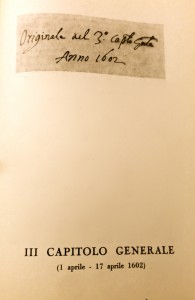 The II General Chapter opened in a troubled atmosphere and one full of tensions because of the unresolved ‘question of the hospitals’. Fr. P. Oppertis, the Provincial of Naples, continued his work as a mediator between the religious and the Founder, and advanced the proposal to divide the Order into two parts, with two Rules, one of which would embrace service in hospitals according to the recommendations of the Founder while the other would involve the commending of the souls of dying people in private homes.
The II General Chapter opened in a troubled atmosphere and one full of tensions because of the unresolved ‘question of the hospitals’. Fr. P. Oppertis, the Provincial of Naples, continued his work as a mediator between the religious and the Founder, and advanced the proposal to divide the Order into two parts, with two Rules, one of which would embrace service in hospitals according to the recommendations of the Founder while the other would involve the commending of the souls of dying people in private homes.
This proposal was very much liked by St. Camillus. In the face of a possible splitting of the Institute, he said that ‘the first and the other part would find very much terrain to work, and that also St. Francis and other saints had produce many and different Rules’
After acceptance by the General Consulta, the II General Chapter was convoked only three years after the previous one.
There were 25 participants, of whom 19 were priests and 6 brothers. Of these, 16 had taken part in the I General Chapter.
The most representative and qualified members of the Order were present, amongst whom, in addition to the Founder, Fr. Oppertis, Fr. Profeta, Fr. Cicatelli and Fr. Nigli.
The Superior General, the members of the General Consulta and the Superiors of the houses were members because of their positions. The strongest group, in this General Chapter as well, was that of the religious from Naples. Indeed the majority of the professed of the Order were Neapolitan.
Endowed with special papal powers, Msgr. Sallustio Tarugi, Commendator of the Holy Spirit and Prelate of Catholic Reform, appointed to do so by the Protector Cardinal Salviati who did not want to take part, presided over the General Chapter. Tarigi knew the Founder and the situation of the Order well, both because he had admired St. Camillus and his religious in their provision of daily care to the sick of his hospital, and because he had been entrusted with providing assistance to St. Camillus and his Institute by Clement VIII.
The principal subjects that were addressed during the General Chapter were: complete service in hospitals, the structure and the government of the Order, the Common and Particular Rules and the Penitential Canons, as well as various provisions.Stances on the ‘question of the hospitals’ remained unchanged compared to the I General chapter: the Founder wanted at all cost a complete service with living quarters in the hospital but the members of the General Chapter were opposed. The controversy continued for a long time, often with the mediation of external experts, and witnessed the two parties engage in debate in an animated way without finding real agreement.
Amongst the various provisions, the authority of the Superior General was very much limited. Hitherto it had been exercised in a rather autonomous form, even though since 1596 the Superior General had been flanked by the four members of the General Consulta. It was established that a Secretary should be elected from the members of the General Consulta whose task would be to receive and read, in the presence of the Superior General and the Consultors, all the correspondence, record in book all the decisions that were taken and the decrees that were made; write letters on behalf of the Superior General; and record in a book all the decisions that were not implemented which would then be referred to the General Chapter.
It was also established that in order to achieve a good government of the Order, the Superior General had to reside in Rome and his Consultors could not be entrusted with any other position.
On 4 August, one of the last sessions, the following were elected General Consultors: Fr. Biagio Oppertis, Fr. Sanzio Cicatelli, Br. Ottaviano Variani, Br. Comanzio De Martino, and the Arbiter Fr. Francesco Profeta (who had to intervene when the General Consulta did not manage to take unanimous decisions), all five of whom were some of the most representative and able religious of the Order. The first two would become Superior General.
The Founder was profoundly dissatisfied with the conclusions of the General Chapter. He was refused the taking on of complete service in hospitals which was his wish and ‘because of the Constitutions made by the Consultors that seek to restrict his authority, to put a brake somewhat on his ardent and measureless fervour’.
The initial proposal, to divide the Order into two parts, was in the end defeated. Shortly afterwards, in the first months of 1601, the General Consulta set about writing the Constitution of the Order which would, as it turned out, put an end to grave internal discord.








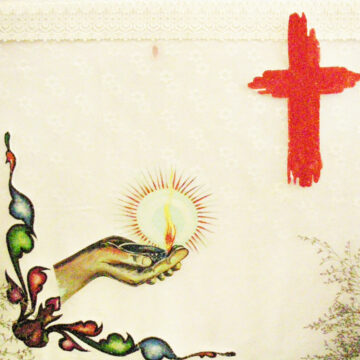
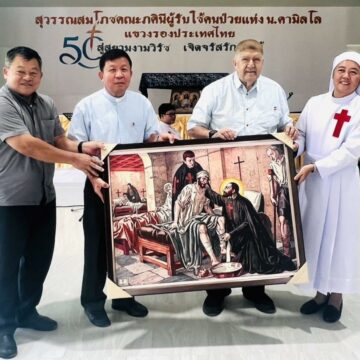
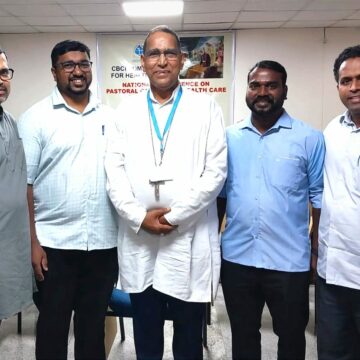


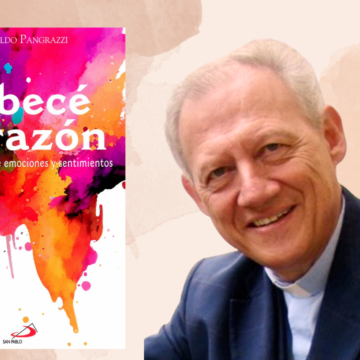
Camillians on Facebook
Camillians on Twitter
Camillians on Instagram